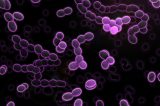Biocontrol agents against Brettanomyces
The contaminating yeast Brettanomyces is a problem, notably for red wines. This yeast is very opportunistic and can survive and multiply in difficult conditions throughout the life of the wine. Hygienic conditions and microbiological controls can inhibit its growth, but will not eliminate it. The goal then is to limit its development, which will in turn limit the production of volatile phenols. The use of SO2 is the preferred method to control its development, however there is a recent trend to reduce the use of SO2 in wine, as well as a general increase in wine pH, which reduces its efficacy. Moreover, there is a great variability in the resistance of SO2 among different Brettanomyces yeasts. The inoculation with our selected natural bacteria is a good option to protect the wine during the fermentation process, and new studies also show their potential to protect wine during the ageing steps against Brettanomyces re-contamination
UI #4 Biocontrol MLB ENG


